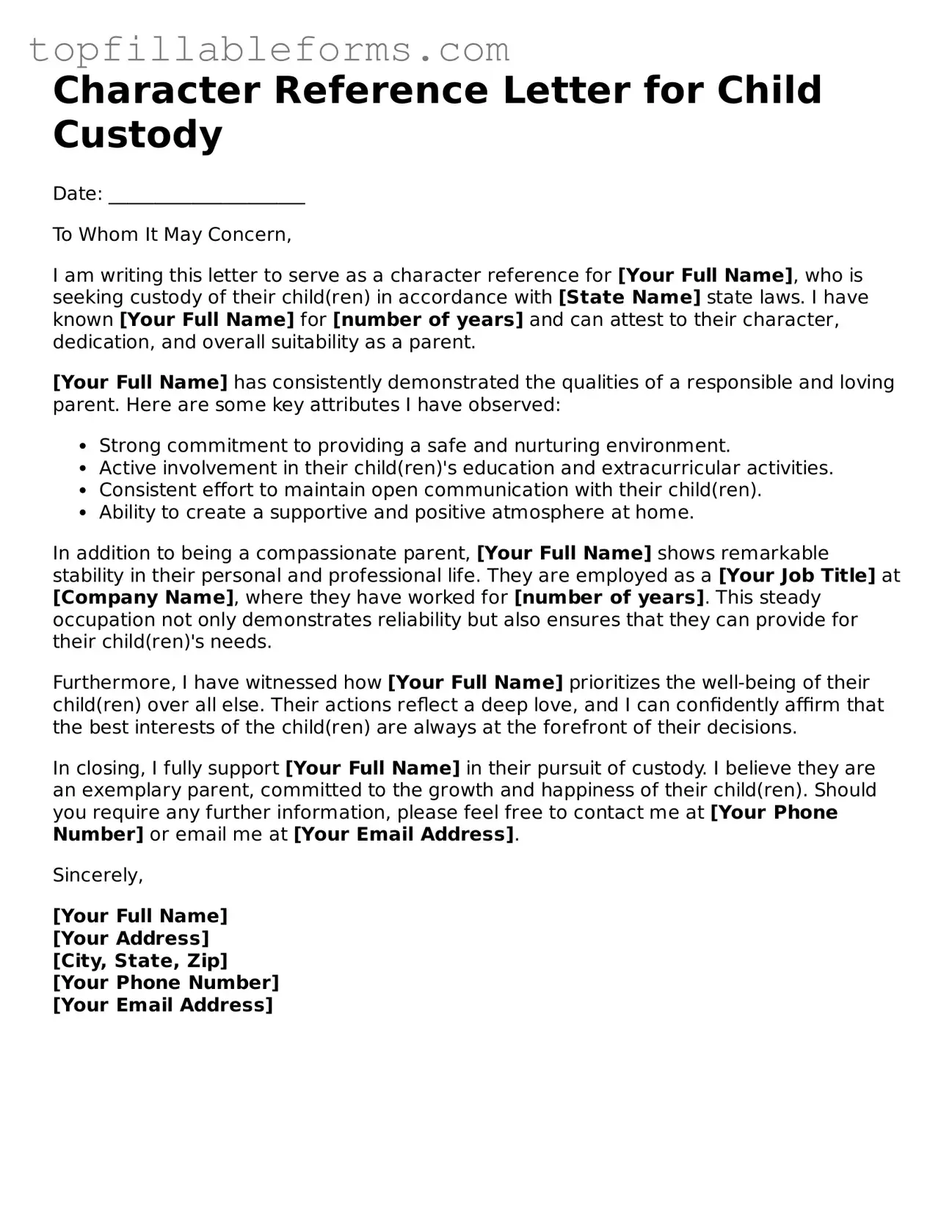Free Character Reference Letter for Child Custody Form
The Character Reference Letter for Child Custody is a document that provides insight into a parent's character and suitability for custody arrangements. This letter can be a vital piece of evidence during custody proceedings, helping to demonstrate a parent's commitment and capability to provide a stable environment for their child. Understanding how to effectively write and present this letter can significantly impact the outcome of custody decisions.
Open Character Reference Letter for Child Custody Editor Here

Free Character Reference Letter for Child Custody Form
Open Character Reference Letter for Child Custody Editor Here
Finish the form now and be done
Finish your Character Reference Letter for Child Custody online by editing, saving, and downloading fast.
Open Character Reference Letter for Child Custody Editor Here
or
▼ PDF File
